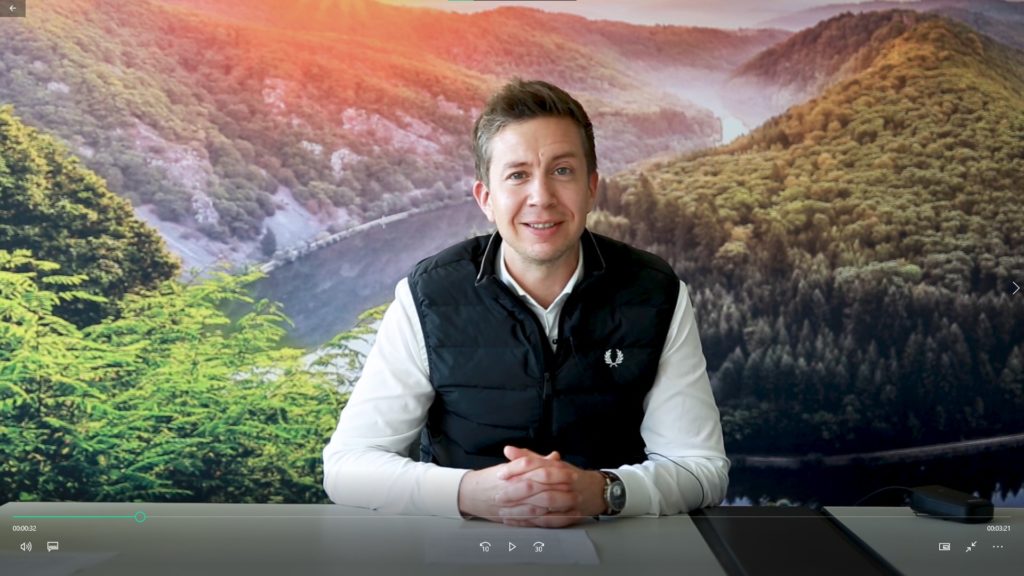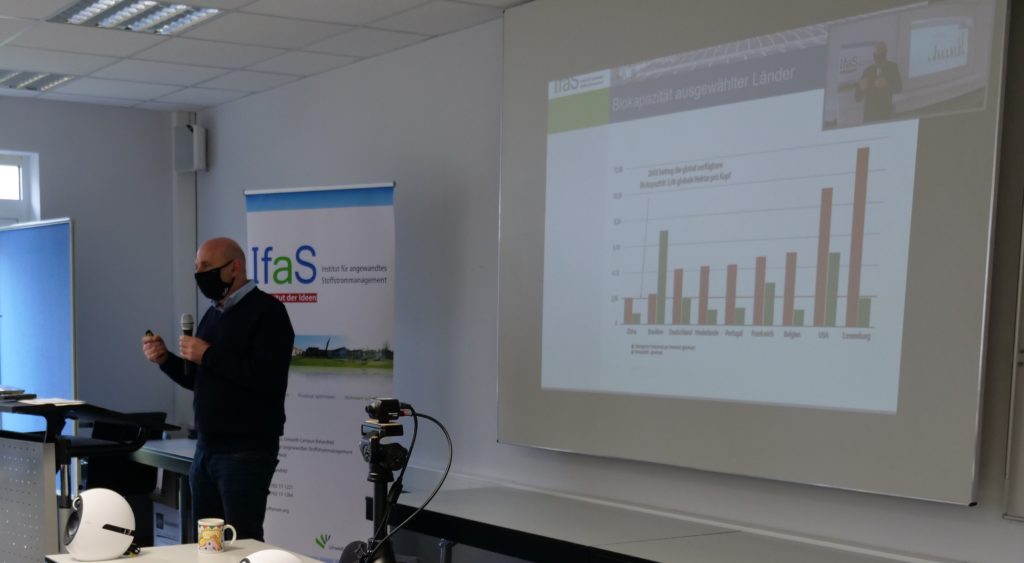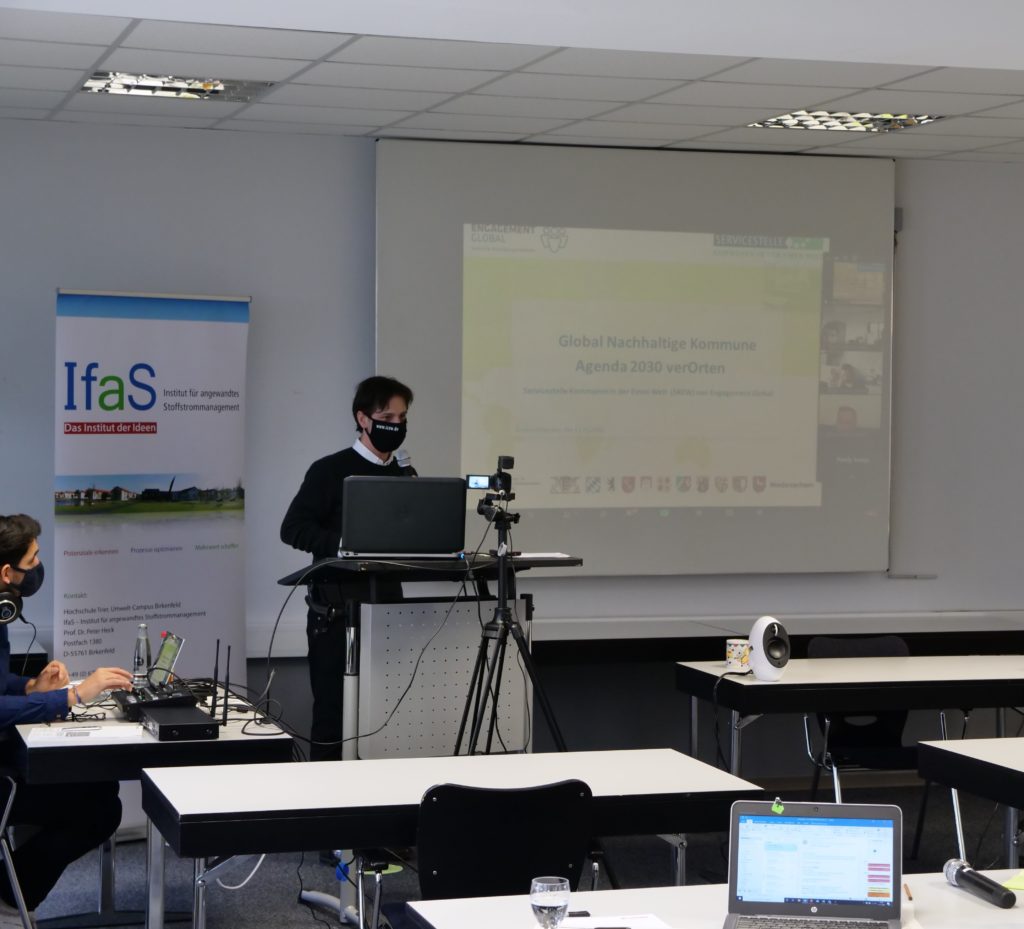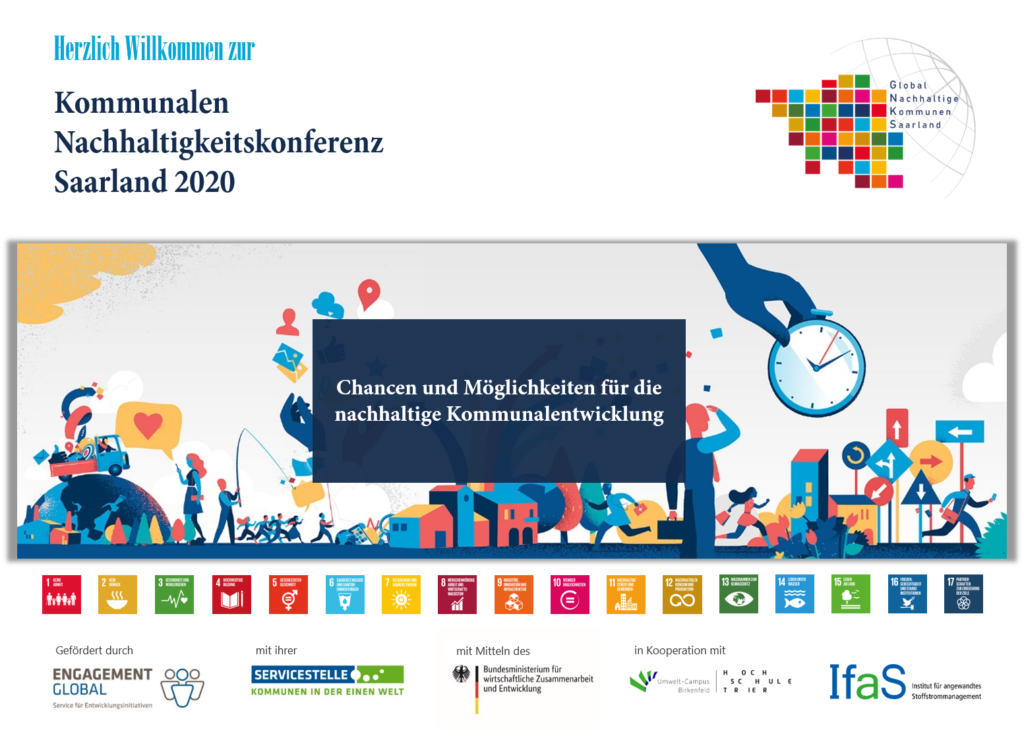On 11 November 2020, the Local Sustainability Conference Saarland 2020 took place within the framework of the project “Global Sustainable Communities in Saarland” (GNK) with around 50 participants. The conference, which was held under the motto “Opportunities and possibilities for sustainable municipal development”, had to be held as a purely digital event due to the Covid-19 restrictions.

The conference was opened by a video message from State Secretary Sebastian Thul of the Saarland Ministry for the Environment and Consumer Protection, who warmly welcomed the participants. He went into more detail on the Saarland’s sustainability strategy adopted at the end of 2016 under the motto “Bearing joint responsibility for today and tomorrow”, confirmed the importance of the Saarland municipalities as key players in long-term sustainable development and congratulated the 13 municipalities selected in the project on their commitment and the projects implemented to date.

Prof. Dr. Peter Heck, Managing Director of the Institute for Applied Material Flow Management (IfaS), and Mr. Simon Hintemann from the Service Agency Communities in One World (SKEW) gave the participants a review of the project and its results to date. Both were enthusiastic about the results and the implementation of the project so far and appealed to the local authorities in the Saarland to motivate themselves to continue on this path in the future. The focus of the Municipal Sustainability Conference Saarland 2020 was the presentation of concrete best practice examples from the GNK municipalities. In their presentations, Mayor Andreas Veit (municipality of Nohfelden) and Mayor Holger Schäfer (City of Ottweiler) emphasised the importance of the project for their communities and shared their previous experience in implementing concrete projects in the context of the global sustainability goals (Sustainable Development Goals) and anchoring a municipal strategy with the participants. Short presentations by Blue Future Project, BeeGreat, the Saarland Development Policy Network and RENN.west on practical offers for municipalities to implement Agenda 2030 in Saarland rounded off the programme and showed how broad the range of possibilities for local involvement can be. Despite the digital format of the conference, the discussion and networking among the participants did not fall short. Moderator Pascal Thome from the saarland.innovation&standort e. V. (saaris) skilfully used the various participation formats (chat, video statements, live contributions, online survey).

The GNK consultancy service in Saarland is carried out with the financial support of the Federal Ministry for Economic Cooperation and Development (BMZ) by the Service Agency Communities in One World of Engagement Global in cooperation with IfaS. The Saarland Ministry of the Environment (MUV) is accompanying the process.

